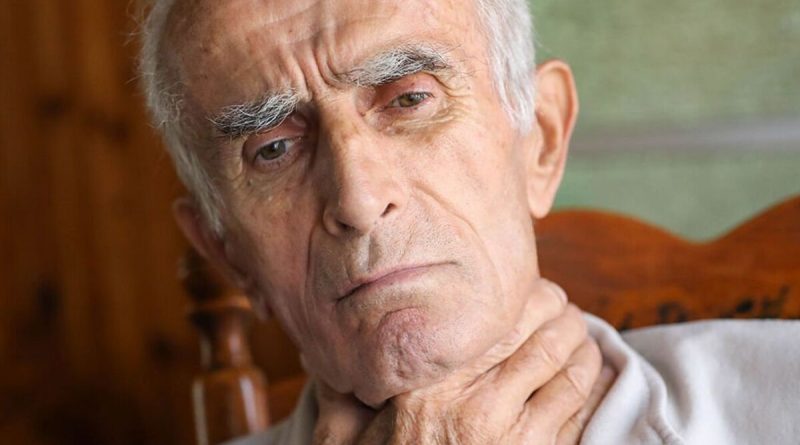Man, 70, battles onslaught of B12 deficiency symptoms
Dr Dawn Harper on signs of vitamin B12 and vitamin D deficiency
We use your sign-up to provide content in ways you’ve consented to and to improve our understanding of you. This may include adverts from us and 3rd parties based on our understanding. You can unsubscribe at any time. More info
Vitamin B12 deficiency underpins many important processes in the body. Chief among them is making red blood cells and supporting a healthy nervous system. It’s little wonder, then, that B12 deficiency deals a hammer blow to the body.
A case report, entitled “Take your vitamins! A case-report of Vitamin B12 deficiency resulting in psuedo-thrombotic microangiopathy”, charts the impact low B12 can have on the body.
It follows a 70-year-old man who experienced dysphagia (swallowing difficulties) fatigue, and “B symptoms” – indicators of a systemic inflammatory response which tend to include fever, night sweats and unintentional weight loss – over the course of three months.
He had a a history of right hemicolectomy – a type of surgery done to remove part of your large intestine called your colon.
This detail is significant because some conditions that affect your intestines can also stop you absorbing the necessary amount of vitamin B12.

“The patient was diagnosed with severe vitamin B12 deficiency likely secondary to his prior right hemicolectomy leading to impaired absorption of vitamin B12,” states the case report.
It also notes the man had “elevated intrinsic factor antibodies” suggestive of pernicious anaemia.
Pernicious anaemia is the most common cause of vitamin B12 deficiency in the UK.
Pernicious anaemia is an autoimmune condition whereby your immune system attacks the cells in your stomach that produce the intrinsic factor – a protein that helps your body absorb vitamin B12.
DON’T MISS
Harry Potter’s Robbie Coltrane was in pain prior to death [INSIGHT]
Man, 87, diagnosed with dementia following ‘trich’ habit [ADVICE]
‘Top five’ Covid symptoms to spot as cases surge in UK [TIPS]
Interestingly, the patient was not vegetarian or vegan.
Vitamin B12 is mainly found in animal products so people who eat a vegan diet and do not take vitamin B12 supplements or eat foods fortified with vitamin B12 are at risk.
Fortunately, the 70-year-old received intramuscular injections and once his counts were improving and stable, he was discharged.
His presenting symptoms subsequently resolved, the case report says.
READ MORE: B12 deficiency: The sign when waking up in the morning – seen in almost 90% of cases

Vitamin B12 deficiency deficiency is usually treated with injections of vitamin B12.
There are two types of vitamin B12 injections:
- Hydroxocobalamin
- Cyanocobalamin.
Other ways to top up B12
According to the NHS, good sources of vitamin B12 include:
- Meat
- Salmon and cod
- Milk and other dairy products
- Eggs.
“If you’re a vegetarian or vegan, or are looking for alternatives to meat and dairy products, there are other foods that contain vitamin B12, such as yeast extract (including Marmite), as well as some fortified breakfast cereals and soy products.”

According to the health body, people who find it difficult to get enough vitamin B12 in their diets, such as those following a vegan diet, may need vitamin B12 tablets for life.
“Although it’s less common, people with vitamin B12 deficiency caused by a prolonged poor diet may be advised to stop taking the tablets once their vitamin B12 levels have returned to normal and their diet has improved,” it adds.
How much vitamin B12 do I need?
Holland and Barrett says: “All adults need 1.5mcg of vitamin B12 every day.”
Vitamin B12 is needed for healthy cell division,9 so it’s important for growing children:
- 1-3 years old – 0.5mcg a day
- 4-6 years – 0.8mcg a day
- 7-10 years – 1mcg a day
- 11-14 years – 1.2mcg a day
- 15-18 years – 1.5mcg a day.
Source: Read Full Article



